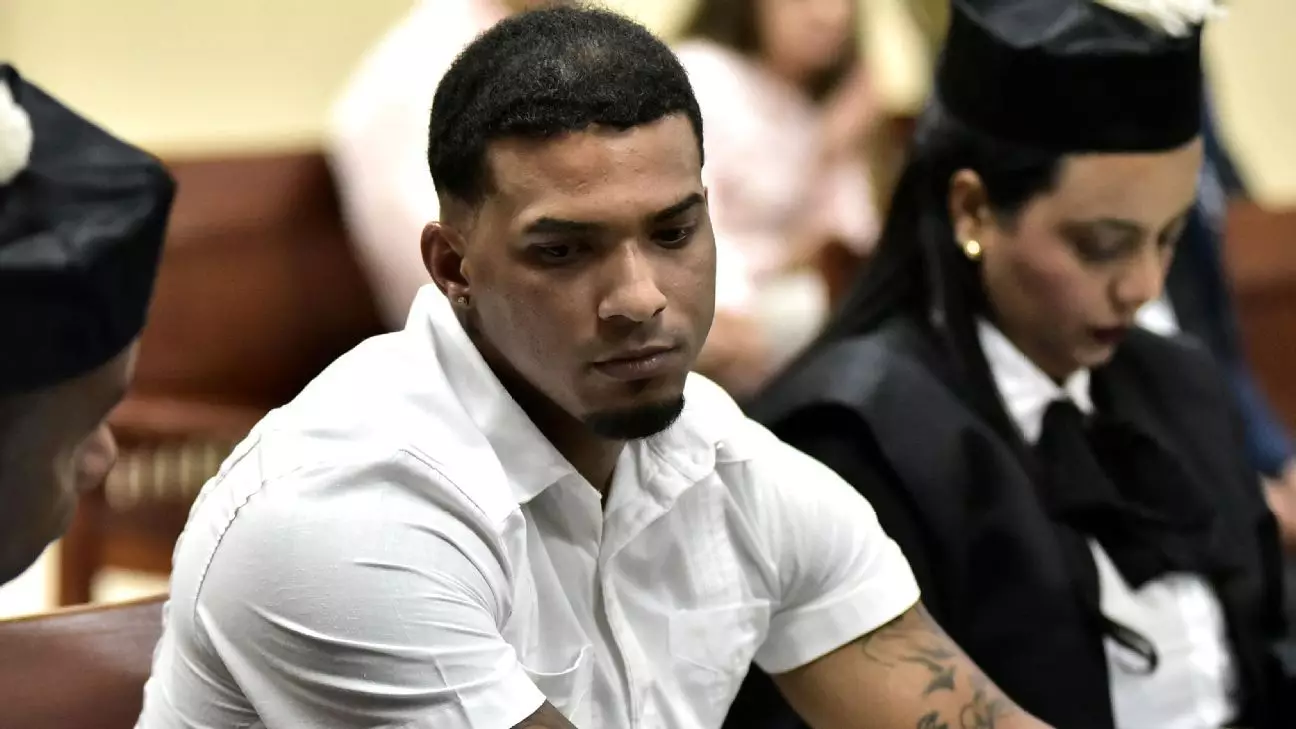The case against Wander Franco, the Tampa Bay Rays infielder who has been suspended amid serious allegations of sexual abuse involving a minor, has drawn scrutiny from multiple angles. As prosecutors seek a five-year prison sentence grounded in what they claim is “compelling” evidence, the matter transcends mere legal ramifications, representing a societal failure to protect the most vulnerable. Legal proceedings have unveiled claims that Franco not only engaged in an illegal relationship with a 14-year-old girl but also allegedly funneled money to her mother to facilitate this illicit affair. This interplay of power and money raises critical questions regarding accountability, consent, and the ethical obligations of individuals in positions of influence.
The Role of Money in Exploitation
Prosecutors allege that significant financial transactions—totaling over $68,500—were made toward the girl’s mother as a means to sanction the alleged abuse. The accusation suggests a chilling transactional dynamic that transforms human relationships into commodities, undermining the very essence of morality. Such financial exchanges are commonly associated with exploitation, where monetary compensation is leveraged to silence victims, or in this case, to gain consent. As shocking as these allegations may be, they prompt a broader conversation about how wealth can distort power hierarchies, especially when protecting the safety of young individuals is at stake.
The Complexity of Legal Defense
Franco’s lawyers argue that there are ambiguities in the charges, raising questions about his role in the situation. They contend that determining Franco’s culpability—whether he is merely an accomplice or the primary architect of this alleged crime—is essential to the case. This complexity is not uncommon in legal battles involving allegations of sexual misconduct, where motives, relationships, and the chain of events often intertwine, making it tough for the court to navigate through the tangled narrative. Yet, such complexities should not act as a shield for injustices; instead, they should push for deeper investigations that ensure victims have a voice and perpetrators are held fully accountable.
A Broader Reflection on Responsibility
With Franco’s career hanging in the balance amid these severe accusations, the broader sporting world must reflect on its responsibility to tackle issues of misconduct. The mere presence of financial contracts worth millions does not exempt athletes from ethical condemnation; rather, it amplifies the necessity for organizations to implement robust frameworks for preventing abuse. Major League Baseball and teams like the Rays must cultivate a culture of vigilance and support for victims, aligning with contemporary values of integrity and justice.
Implications for Future Generations
As the case unfolds, it serves as a critical teaching moment about the necessity of safeguarding against exploitation in all forms. For future generations of athletes, educators, and parents alike, the priority should be to foster environments where consent is prioritized, and the complexities of relationships are unpacked in age-appropriate ways. This case should ignite conversations that dismantle harmful narratives and behaviour, fostering an atmosphere of mutual respect and understanding that will transcend beyond the confines of the baseball field.

